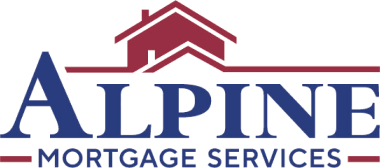Conforming Loan Limits
Conforming loan limits are the maximum loan amounts for mortgages that can be purchased by Fannie Mae and Freddie Mac, the two government-sponsored enterprises (GSEs) that play a crucial role in the U.S. housing finance system. These limits are adjusted annually by the Federal Housing Finance Agency (FHFA) based on changes in average home prices.
The FHFA determines conforming loan limits based on the House Price Index (HPI), which measures the average change in home prices across the country. The conforming loan limit is set at 115% of the median home price in a given area, subject to a floor and a ceiling. Conforming loan limits are divided into two main categories:
- Standard Conforming Loan Limits. These limits apply to most counties in the state and represent the baseline for conforming mortgages.
- High Cost Area Conforming Loan Limits. These limits are higher than the standard limits and are applicable in counties with significantly higher median home prices.
2025 Conforming Loan Limits
For 2025, the baseline conforming loan limit for a single family home is $806,500, up from $766,550 in 2024. This increase of approximately 5.21% reflects the rise in home values over the past year. In high-cost areas, where 115% of the local median home value exceeds the baseline limit, the loan limit can go up to 150% of the baseline. For 2025, this upper limit is $1,209,750, up from $1,149,825 in 2024.
High-Cost Areas and Special Provisions
High-cost areas are regions where the median home prices significantly exceed the national average. In these areas, the conforming loan limits are higher to accommodate the elevated home prices. For example, in counties like Los Angeles, New York, and San Francisco, the conforming loan limit for a single-family home is set at $1,209,750 for 2025. Additionally, special provisions apply to Alaska, Hawaii, Guam, and the U.S. Virgin Islands, where the baseline loan limit is also set at $1,209,750 due to higher construction costs and home prices in these regions.
Multi-Unit Property Loan Limits
For multi-unit properties, the 2024 conforming loan limits are as follows:
- 2 Unit Properties: The standard limit is $1,032,650 with high cost area limits up to $1,548,975.
- 3 Unit Properties: The standard limit is $1,248,150 with high cost area limits up to $1,872,225.
- 4 Unit Properties: The standard limit is $1,551,250 with high cost area limits up to $2,326,875.
Historical Context and Trends
The conforming loan limits have been adjusted annually to keep pace with the changes in home prices. For instance, the limit for a single-family home was $417,000 from 2006 to 2008, and it has steadily increased over the years to reflect the rising home values. The FHFA uses its House Price Index (HPI) to determine the annual adjustments, ensuring that the limits align with the current housing market conditions.
Benefits of Conforming Loans
Conforming loans offer several advantages over non-conforming or jumbo loans:
- Lower Interest Rates: Conforming loans typically have lower interest rates compared to jumbo loans because they are less risky for lenders. Fannie Mae and Freddie Mac guarantee these loans, providing a safety net for lenders.
- Easier Qualification: The qualification criteria for conforming loans are generally more lenient. Borrowers can qualify with lower credit scores and smaller down payments compared to jumbo loans.
- Liquidity: Conforming loans are more liquid because they can be easily sold in the secondary market. This liquidity makes it easier for lenders to offer these loans and for borrowers to find competitive rates.
Jumbo Loans: When Conforming Limits Are Exceeded
Loans that exceed the conforming loan limits are known as jumbo loans. These loans are not eligible for purchase by Fannie Mae or Freddie Mac, making them riskier for lenders. As a result, jumbo loans often come with higher interest rates and stricter qualification requirements, such as higher credit scores and larger down payments.
How to Determine Your Local Conforming Loan Limit
The conforming loan limits vary by county and are influenced by local home prices. You can view the loan limits for each state we lend in by clicking the states below:
How to Get Pre-approved for a Conforming Loan
Getting pre-approved for a conventional mortgage is quick and easy with our online Loan Application. After completing the application, you will receive instructions on how to upload your documents. For a list of documents you will need to upload, see our Pre-approval Document Checklist.
Alpine Mortgage provides conventional loans in California, Connecticut, Florida, Georgia, New Jersey, New York, Pennsylvania and Texas. Call us today at (800) 876-5626 to speak with one of our conventional mortgage loan specialists or click here to have one of our conventional home loan specialists contact you.
Conventional Loan Limits FAQs
Loan limits vary because they are based on the median home prices in specific areas. This approach ensures that the amounts reflect the local real estate market, making conventional loans accessible and reasonable for homebuyers in different regions.
Conforming loan limits can change annually based on movements in the housing market and home price indices.
If the home price exceeds the conforming loan limits for your county, you have a few options: consider a different home that falls within the loan limits, make a larger down payment to cover the difference, or look into different types of financing, such as a conventional jumbo loan.
See our Conventional Loan Requirements for more information on how to qualify for a conventional loan.
No, there are no income limits for obtaining a coventional loan. However, borrowers must meet debt-to-income (DTI) ratio guidelines and prove their ability to repay the loan. Typically, conventional loan guidelines require a DTI ratio of 50% or less.
Get a Quick Quote
"*" indicates required fields
